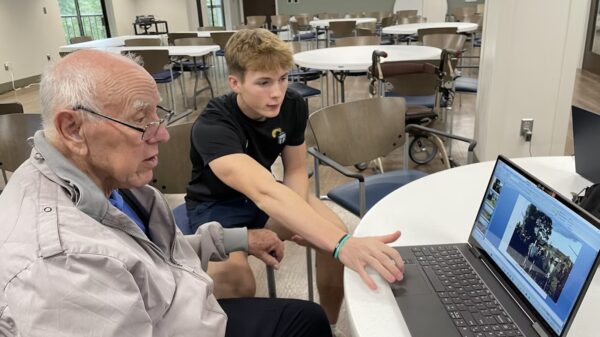Alabama Gov. Kay Ivey announced that Alabama’s K-12 schools will remain closed for the rest of the 2019-2020 school year.
“Beginning at the start of school on April 6, 2020, all public K-12 schools shall implement a plan to complete the 2019-2020 school year using alternate methods of instruction as established by the State Superintendent of Education,”
For many wealthier suburban children, this will mean a transition to E-learning. For many poorer and more rural children, they don’t have broadband in their homes.
Some schools already have this in place. Other systems will be scrambling to get compliant with Superintendent Eric Mackey’s directives and parents will have to figure it out once their local schools do.
If your internet connection consists of going to the McDonald’s parking lot (sitting in the dining portion of a restaurant is now illegal due to COVID-19 fears) being a good E-learner will prove to be challenging it if happens at all.
Alabama cable providers want to supply that broadband to unserved and underserved communities. The Alabama Cable and Broadband Association welcomed the news.
“Taking into account the events of the last three weeks, greater reliance on high-speed internet service from our homes has emerged almost overnight,” said ACBA Executive Director Michelle Roth, Executive Director. “Fortunately for many Alabamians, high-speed or ‘broadband’ access already existed in the home. But for many who live in rural areas of the state, and for those who cannot afford broadband service, the spotlight exposed the absence of broadband in homes and small businesses.”
“Shortly after the COVID-19 outbreak, Alabama cable providers rolled out no-cost and low-cost options for high-speed internet access to the state’s students and low-income populations hit hardest by closures and other impacts of the virus,” Roth said. “These efforts include offering free broadband and Wi-Fi access for up to 60 days to households with K-12 and/or college students, extending low-cost broadband programs, opening Wi-Fi hotspots for public use, eliminating disconnections of internet service for customers having difficulty paying, and increasing internet speeds universally.”
Even prior to the current public health crisis, Alabama’s cable providers had already been planning to invest more than $13 million to bring broadband telecommunications services to rural Alabama citizens who do not yet have high-speed internet services. The investment would be incentivized through $4.67 million in grant funding from the Alabama Broadband Accessibility Fund (ABAF), a state fund established in 2018 to help extend broadband services to rural Alabamians who do not yet have them.
These ABAF grants can fund up to 35 percent of project costs to extend broadband technology, would enable the full $13 million cable provider broadband investment. These grant-funded projects would be in addition to the ongoing rural broadband investment being made by Alabama’s cable providers, Roth said.
For the current ABAF grant cycle, the 18 grants applied for by Alabama cable providers cover nearly 8,000 rural Alabama homes and businesses, including 35 community anchor locations such as rural hospitals and libraries. The grants seek to serve the highest number of unserved homes, businesses and community anchor points for the least cost and best level of service. Projects including the highest broadband speeds are emphasized in the evaluation process.
“Alabama’s cable companies have been providing broadband to rural consumers since the late 1990s, and we are proud to continue efforts to expand broadband service in rural areas,” Roth said. “But bringing high-speed, broadband access to Alabama’s rural customers takes more than just cable provider investment. It takes all broadband providers across technology platforms working together for a common good as quickly and efficiently as we can.”
“No stakeholders can say for sure how our economy and society will change as a result of the COVID-19 crisis; however, this much is clear: we must expedite our collective industry efforts to bring broadband to the state’s rural and low-income citizens, so that everyone has a chance at a much brighter future,” Roth said.
While unserved communities is the focus on the state’s broadband efforts, there are also many communities with an obsolescent cable connection that don’t have enough bandwidth and speed to get the most out of the internet.
As of press time, 526 confirmed cases of COVID-19 had already been found and hundreds of COVID-19 diagnosed persons, as well as people who were admitted to the hospital with symptoms that appear to be COVID-19 are filling Alabama’s intensive care wards and many of them are on ventilators. Children’s Hospital already has one of these patients.
Families are being advised to shelter in place for their own protection and so as not to spread the virus to other people. The Mayors of Birmingham and Tuscaloosa have both given orders forbidding nonessential movements. This will be somewhat perplexing for the parent that has to drive miles to a library, Jacks, or McDonalds to access the WIFI for the child to fulfill their public school assignments.
We don’t know yet whether grades and advancing to the next grade or not will be dependent on how a child performs in the remaining eight weeks of distance learning.
COVED-19 has already killed 1,300 Americans, including at least one Alabamian, as of press time and over 84,000 Americans have been confirmed with the disease. Many more are infected and are showing only mild symptoms. Others are waiting on labs to process their test results. A shortage of test kits has also delayed getting many people tested.

















































